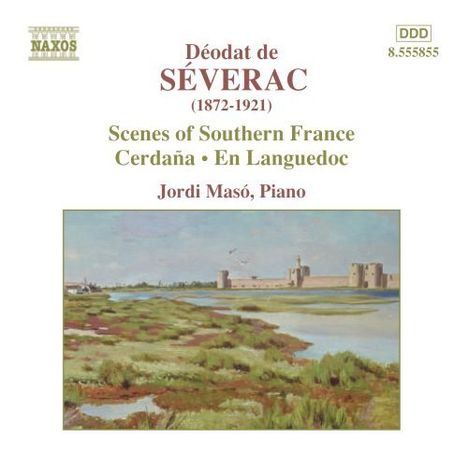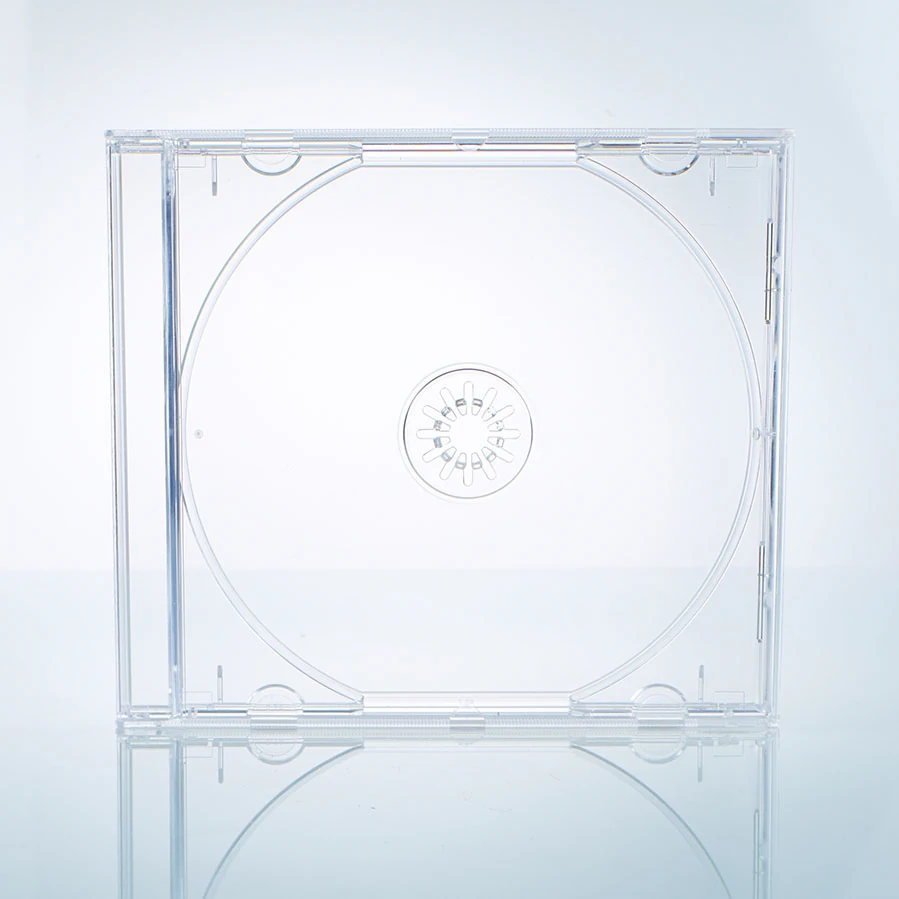Deodat de Severac: Klavierwerke Vol.1 auf CD
Klavierwerke Vol.1
Herkömmliche CD, die mit allen CD-Playern und Computerlaufwerken, aber auch mit den meisten SACD- oder Multiplayern abspielbar ist.
Lassen Sie sich über unseren eCourier benachrichtigen, falls das Produkt bestellt werden kann.
En Tartanc; Les fetes; Menetrieres et glaneuses; Les muletiers devant le Christ de Llivia; Vers le mas en fete; Sur l'etang, le soir; A cheval, dans la prairie; Coin de cimetiere, au printemps; Le jour de la Foire, au mas; Le retour de muletiers
- Künstler:
- Jordi Maso, Klavier
- Label:
- Naxos
- Aufnahmejahr ca.:
- 2001
- UPC/EAN:
- 0747313585526
- Erscheinungstermin:
- 12.1.2004
Ähnliche Artikel
Während seiner relativ kurzen Karriere betonte de Séverac die Bedeutung der lokalen Inspiration als Mittel zur Bewahrung einer Musikform, die unverkennbar französisch war. Seine Lieder umfassen Vertonungen von Texten in Katalanisch und Provenzalisch, und es war diese Region zwischen Marseille und Barcelona, die sein anhaltendes Interesse und seine Loyalität auf sich zog. Seine Betonung der Bedeutung des Regionalismus, Thema seiner Dissertation La centralisation et les petites chapelles en musique an der Schola Cantorum, entsprach den vorherrschenden Ansichten an der Schola und bis zu einem gewissen Grad der Politik der Action française und Charles Maurras, einem patriotischen Kämpfer für eine starke Erbmonarchie, die eine bedeutende regionale Autonomie ermöglichen würde. De Séverac behielt seine intensiven lokalen Loyalitäten und Interessen, aber nicht seine Sympathie für die Schola. Die Einstellung jüngerer Komponisten änderte sich etwas, insbesondere nach dem Skandal am Konservatorium wegen der Verweigerung des Prix de Rome für Ravel und der anschließenden Ernennung von Gabriel Fauré zum Direktor, und de Séverac hatte mehr mit Debussy und Ravel gemeinsam als mit dem empfundenen Formalismus der Schola. Er wurde stark von Isaac Albéniz beeinflusst und vollendete Navarra, das Albéniz bei seinem Tod 1909 unvollendet hinterlassen hatte, nachdem er es zuvor aus seiner Suite Iberia als descaradamente populachero (unverschämt vulgär) abgelehnt hatte.
Product Information
Through his relatively short career de Séverac stressed the importance of local inspiration as a means of preserving a form of music that was distinctively French. His songs include settings of texts in Catalan and in Provençal, and it was this region, between Marseilles and Barcelona, that drew his continuing interest and loyalty. His emphasis on the importance of regionalism, the subject of his Schola Cantorum thesis La centralisation et les petites chapelles en musique, was in accordance with the prevalent views at the Schola and to some extent with the policies of Action française and Charles Maurras, a patriotic campaigner for a strong hereditary monarchy that would allow significant regional autonomy. De Séverac retained his intense local loyalties and interests, but not his sympathy with the Schola. Attitudes of younger composers underwent some change, particularly after the scandal at the Conservatoire over the denial of the Prix de Rome to Ravel and the subsequent appointment of Gabriel Fauré as director, and de Séverac had more in common with Debussy and Ravel than with the perceived formalism of the Schola. He was greatly influenced by Isaac Albéniz, and completed Navarra, which Albéniz had left incomplete at his death in 1909, having earlier rejected it from his Iberia suite as descaradamente populachero (impudently vulgar).
Rezensionen
"Es ist einfach zu gut, ignoriert zu werden... Jordi Maso spielt durchweg wunderschön, mit viel Subtilität und klanglicher Vielfalt, und ist hervorragend aufgenommen... wärmstens zu empfehlen". (MusicWeb)Disk 1 von 1 (CD)
-
1 Cerdana, 5 etudes pittoresques: En Tartane (L'arrivee en Cerdagne)
-
2 Cerdana, 5 etudes pittoresques: Les fetes (Souvenir de Puigcerda)
-
3 Cerdana, 5 etudes pittoresques: Menetriers et glaneuses (Souvenir d'un pelerinage a Font-Romeu)
-
4 Cerdana, 5 etudes pittoresques: Les muletiers devant le Christ de Llivia (Complainte)
-
5 Cerdana, 5 etudes pittoresques: Le retour des muletiers
-
6 En Languedoc: Vers le mas en fete
-
7 En Languedoc: Sur l'etang, le soir
-
8 En Languedoc: A cheval, dans la prairie
-
9 En Languedoc: Coin de cimetiere, au printemps
-
10 En Languedoc: Le jour de la foire, au mas









